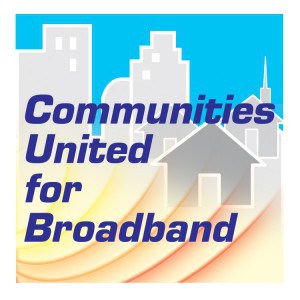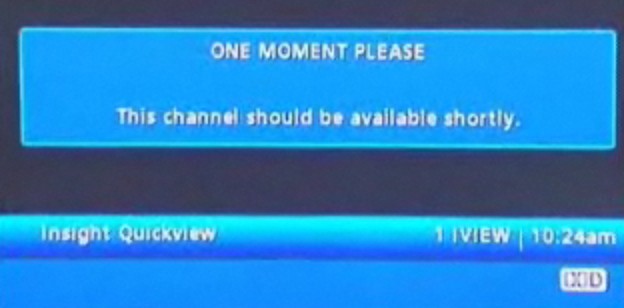 AT&T has agreed to settle a class action lawsuit that accused the company of selling DSL service at speeds it often never provided to customers.
AT&T has agreed to settle a class action lawsuit that accused the company of selling DSL service at speeds it often never provided to customers.
The case, Robert Schmidt, individually and on behalf of all others similarly situated vs. AT&T and SBC Internet Services, Inc., (d/b/a AT&T Internet Services), was filed in 20o9 when AT&T customers learned the company was configuring some customers’ DSL modems at maximum speed rates below those advertised by AT&T.
AT&T has agreed to settle the lawsuit for a maximum of nearly $100 million, or less depending on the total number of claims received nationwide.
The amount customers are entitled to receive will vary depending on how much of an impact AT&T’s speed limiting configuration had on a their service. The settlement is also retroactive back to April 1, 1995 meaning longtime AT&T DSL customers could be entitled to several hundred dollars in compensation. For those dissatisfied with the speeds they received from AT&T’s DSL service, their compensation will be limited to a one-time payment of $2.00.
For some others, the settlement will provide more generous compensation. The law firm that brought the case, Dworken & Bernstein, will receive up to $11 million in compensation and also get to hand out $3.75 million dollars of AT&T’s money to no less than 20 charities.
Some Background
AT&T provides DSL service to the vast majority of its customers. This technology works over traditional copper wire phone lines. Unfortunately, that infrastructure was never designed to carry data, but after years of development engineers found a way to make Ma Bell’s wires work for broadband service. Unfortunately, the service has never been able to provide consistent speeds to every customer. The further away you are from the phone company’s central office (where your phone line ultimately ends up), the slower the speed your line can support. Someone a block away from the phone company office can easily achieve the speeds AT&T promised its customers in its marketing. But if you are a few miles away, chances are you cannot.
For those more distant, or who live in areas with bad phone lines, your DSL modem won’t be able to maintain a consistent connection at the speeds AT&T sold you. That will cause the modem to reset itself regularly, trying to re-establish an appropriately fast connection. That can drive customers crazy because your service will often stop working while the modem tries to renegotiate the connection. Some phone companies stop the constant reconnection battle by configuring the modem to work at a lower, more stable speed that will work with an individual’s phone line.
For instance, here in Rochester Frontier Communications advertises 10Mbps DSL service. But for me, more than 10,000 feet away from Frontier’s central office for my area, the line simply couldn’t support that speed. So Frontier locked the modem to deliver just 3.1Mbps, not the 10Mbps the company markets to customers in this area.
While that practice may seem technically smart, it’s obviously not legally smart, as AT&T has discovered. Even using the traditional weasel words of “up to” when marketing broadband speeds, AT&T felt it was exposed to charges of false advertising and defrauding customers, and decided to settle the case. It should be noted AT&T strongly denies any allegations of wrongdoing, but has agreed to settle to avoid the burden and cost of further litigation.
AT&T now faces the prospect of paying compensation to every DSL customer it speed limited in this fashion, and has also agreed to stop the practice.
The Details
Who Gets the Settlement? — Potentially any AT&T DSL customer paying for service after March 31, 1994. This also includes customers of companies acquired by AT&T:
- SBC Internet Services, Inc., d/b/a AT&T Internet Services
- BellSouth Telecommunications, Inc.
- Pacific Bell Internet Services
- Southwestern Bell Internet Services, Inc.
- Ameritech Interactive Media Services, Inc.
- SNET Diversified Group, Inc.
- Prodigy Communications Corporation
- Oklahoma Internet Online
Many AT&T customers may have already been notified about this settlement through postcards or other mailers sent by AT&T based on customer records.
What Kind of Settlement Will I Get? — For longstanding AT&T DSL customers, the amount could be substantial, so it’s worth your while to participate, even if you are no longer a customer. For most everyone else, it’s probably worth $2.00.
There are three types of benefits that will be paid to those who submit valid claims under the settlement once it becomes final. Payments will be made by check or by credits on a customer’s bill.
- Group A Benefit. If AT&T’s Records indicate that AT&T configured the downstream speed of your DSL service, for one month or more during the Settlement Class Period, at a level lower than the Maximum DSL Speed for the plan you purchased, you may be eligible to receive $2.90 for each month your service was so configured. This could add up to hundreds of dollars.
- Group B Benefit. If you are not eligible for the Group A Benefit and AT&T’s Records show that your DSL service may have performed, for one month or more during the Settlement Class Period, at downstream speeds below the following levels, you may be eligible to receive $2.00 for each such month:
- 200 Kbps, if you purchased a plan with a Maximum DSL Speed of 768 Kbps;
- 384 Kbps, if you purchased a plan with a Maximum DSL Speed of 1.5 Mbps before October 2008;
- 769 Kbps, if you purchased a plan with a Maximum DSL Speed of 1.5 Mbps after October 2008;
- 1.5 Mbps, if you purchased a plan with a Maximum DSL Speed of 3.0 Mbps; or
- 3.0 Mbps, if you purchased a plan with a Maximum DSL Speed of 6.0 Mbps.
Because the settlement provides for monthly credits, you could also receive hundreds of dollars in refunds or service credits, making participation in the settlement worthwhile.
- Group C Benefit. If AT&T’s records do not show that either you fall within Group A or Group B but you nonetheless believe that your DSL service has not performed at satisfactory speeds based upon the plan that you purchased, you may still be eligible for a one-time payment or bill credit of $2.00. In other words, if at anytime you were underwhelmed by AT&T’s DSL speeds, you can file a claim and get two dollars back.
AT&T has also agreed to monitor customers’ DSL speeds over a period of 12 months and if service cannot achieve the speeds promised, the company will either make repairs to boost speed or adjust billing.
For AT&T customers in Missouri, Oklahoma, Kansas, Arkansas, and Texas, AT&T’s settlement would replace a similar class action case filed in St. Louis. Ford and Dunne v. SBC Communications, Inc. and SBC Internet Services, Inc., would have only covered customers after December 31, 2000.
Customers who believe they are entitled to participate in the settlement can get additional information and file an online claim at the DSL Speed Settlement website.


 Subscribe
Subscribe





